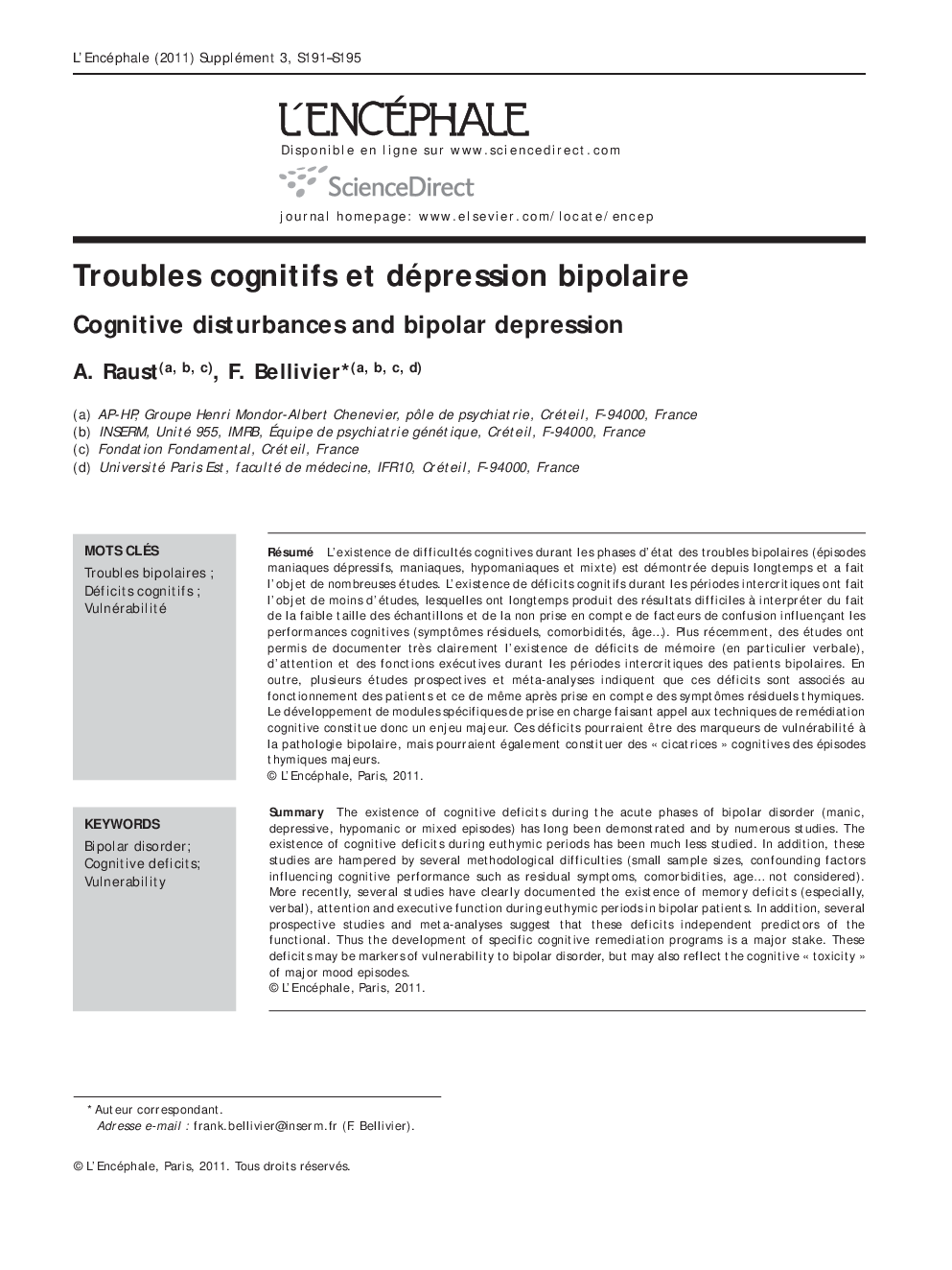| Article ID | Journal | Published Year | Pages | File Type |
|---|---|---|---|---|
| 4182106 | L'Encéphale | 2011 | 5 Pages |
Abstract
The existence of cognitive deficits during the acute phases of bipolar disorder (manic, depressive, hypomanic or mixed episodes) has long been demonstrated and by numerous studies. The existence of cognitive deficits during euthymic periods has been much less studied. In addition, these studies are hampered by several methodological difficulties (small sample sizes, confounding factors influencing cognitive performance such as residual symptoms, comorbidities, age⦠not considered). More recently, several studies have clearly documented the existence of memory deficits (especially, verbal), attention and executive function during euthymic periods in bipolar patients. In addition, several prospective studies and meta-analyses suggest that these deficits independent predictors of the functional. Thus the development of specific cognitive remediation programs is a major stake. These deficits may be markers of vulnerability to bipolar disorder, but may also reflect the cognitive « toxicity » of major mood episodes.
Keywords
Related Topics
Health Sciences
Medicine and Dentistry
Psychiatry and Mental Health
Authors
A. Raust, F. Bellivier,
